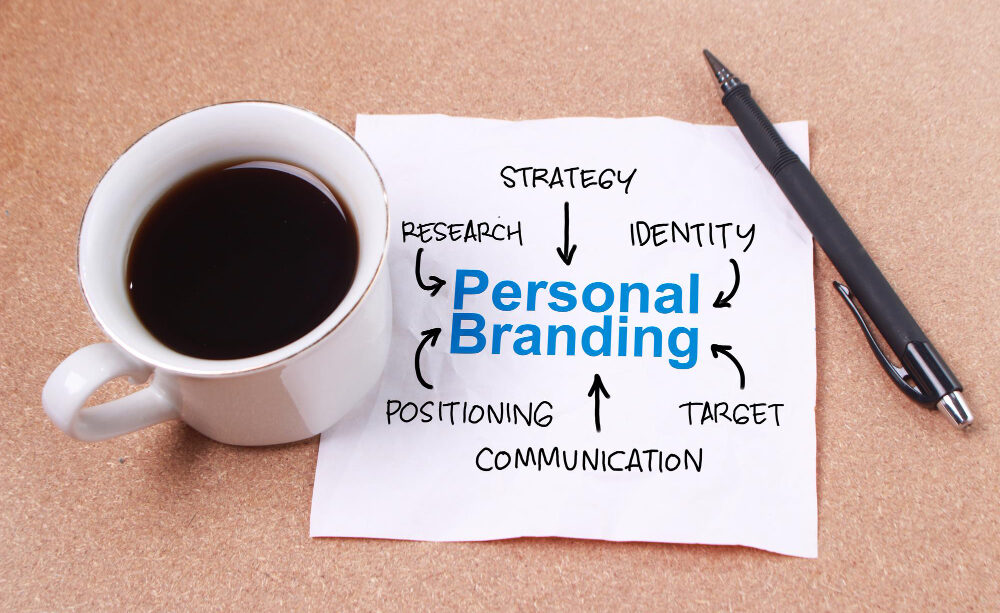Why B2B Brand Needs a Strong Personal Brand in 2025
The business world is changing, and fast. In 2025, building a strong personal brand isn’t just for influencers or sole entrepreneurs. It’s becoming a strategic advantage for B2B brands, especially those led by visible, active thought leaders.
Trust is Personal
In the world of B2B marketing, trust is paramount. When businesses decide to collaborate, they are often engaging in long-term relationships with significant investments. This means that trust isn’t merely an option; it’s a necessity. A strong personal brand for CEOs, founders, and marketing leaders can play a crucial role in building that trust. In a time where digital transparency is fertile ground for scrutiny, having a personal brand strengthens credibility and humanises the company. Clients and partners often seek authenticity, and there is nothing more authentic than a leader who stands behind their company and its values.
Social Media Is the New Stage For Leadership
Today’s B2B buyers spend time on platforms like LinkedIn, Twitter, and even newer platforms, thought leadership has a new stage: The social media feed. Leaders displaying their acumen in social-first strategies, sharing insights, engaging with the community, and showcasing their knowledge through consistent and valuable content become beacons of trust and reliability. A B2B marketing strategy that incorporates social-first leadership ensures that the company’s vision and mission are consistently communicated, giving stakeholders a sense of direction and purpose.
Driving Visibility and Leads
Personal branding doesn’t just end at trust; it extends to visibility and lead generation. When leaders share content that resonates with target audiences, it significantly amplifies the company’s message. Engaging in a content marketing strategy that leverages the personal brand of the leadership team can draw more eyeballs than traditional corporate channels. Tools like an AI powered content generator or a robust marketing strategy generator can simplify this process, making it effortless to incorporate personal branding into a cohesive digital marketing strategy. Leaders with strong personal brands frequently attract media mentions, speaking opportunities, and guest blogging spots, all contributing to increased visibility and inbound leads.
Competitive Edge
Business landscapes, notably in sectors like tech, SaaS, logistics, and professional services, are intensely competitive. A strong personal brand can offer a competitive edge that is difficult to match. The visibility and trust cultivated by a well-established personal brand often puts a leader—and by extension, their company—ahead of the competition. In environments where multiple companies may offer similar products or services, the differentiating factor can very well be the persona of the leaders guiding those firms. A well-executed B2B marketing strategy that includes personal branding elements can turn the tide in favour of the business, ensuring it stands out amid the competition.
Internal Alignment
While external perceptions are vital, internal alignment is equally important. A leader with a strong personal brand instills a sense of pride, belonging, and motivation among employees. This internal goodwill translates into better performance, higher employee retention, and a unified company culture. When employees see their leaders actively engaging in thought leadership and exemplifying the company’s mission, they are more likely to align themselves with those values and become brand ambassadors in their own right.
The Role of Advanced Marketing Tools
Incorporating advanced marketing tools like an AI powered content generator can streamline the process of personal branding. These tools aid in creating customised, high-impact content that aligns with specific business goals. By harnessing technology, companies can craft sophisticated, data-driven B2B marketing strategies that not only enhance the personal brand of their leaders but also reinforce the company’s overarching brand promise.
Actionable Insights and Strategies
For leaders looking to build or fortify their personal brand, several actionable insights can be gleaned from successful strategies. Regularly publishing thought leadership articles, engaging with followers on social media, participating in industry panels, and offering frequent, insightful commentary on market trends are excellent ways to start. Advanced tools and platforms can assist in compiling these insights and formatting them into a comprehensive marketing strategy, ensuring consistent and impactful messaging.
Another vital aspect is the implementation of a content marketing strategy that includes the creation of blogs, webinars, and eBooks. These should be informed by a robust marketing strategy generator that can provide an actionable 12-month plan. This assists not only in maintaining a steady flow of valuable content but also in measuring performance metrics that validate the effectiveness of the strategy.
The B2B space in 2025 will demand leaders to adapt to the shifting approach of marketing. An integrated approach that combines traditional B2B marketing strategies with personal branding elements can drive substantial business results. The key lies in understanding that leadership visibility isn’t just a corporate benefit; it’s a necessity for sustainable growth, credibility, and competitive advantage. Leveraging tools like Robotic Marketer’s AI solutions can not only automate and enhance these efforts but also bring a level of sophistication that is increasingly required in today’s complex business ecosystems.


